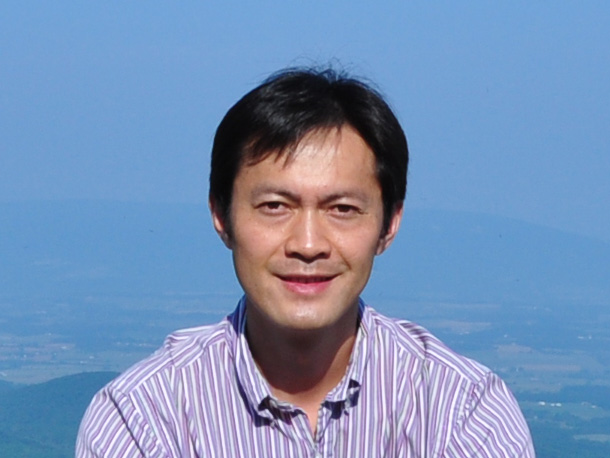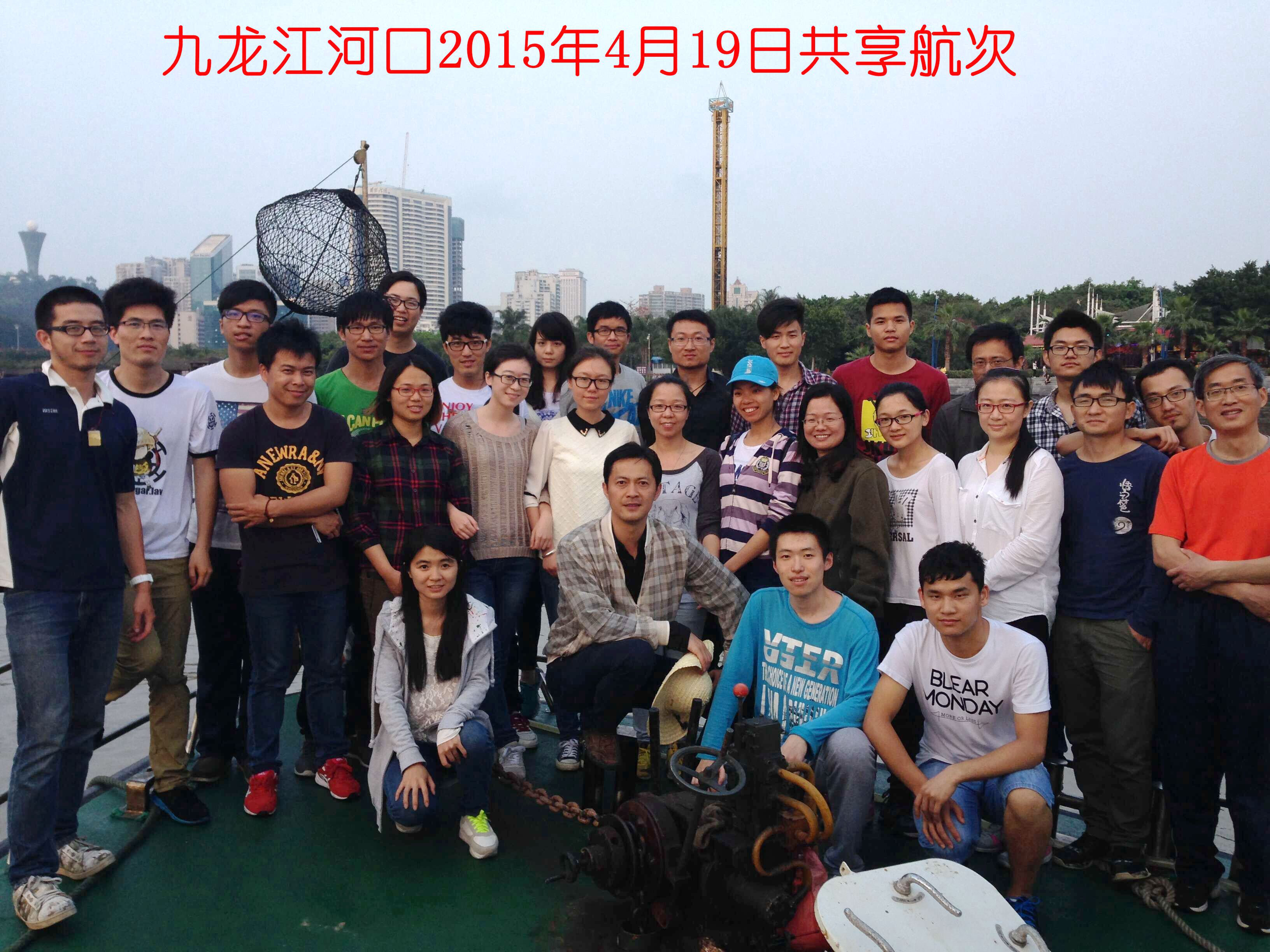陆海交界的海岸带地区,人口密集,经济活跃,在人类活动叠加气候变化影响下,出现了一系列生态环境问题,这些问题在发展中国家更为突出,特别是环境中人为营养盐增加引起的富营养化、有害藻华、低氧和酸化问题。当前海岸带地区社会经济的可持续发展面临资源、环境、生态等诸多挑战。

在此背景下,陈能汪博士主要研究营养盐生物地球化学、环境过程与效应、环境规划与管理、环境大数据,并致力于为陆海统筹生态环境综合治理提供科技支撑。陈能汪博士于1998年获南京农业大学环境科学专业学士学位,2006年获4166金沙之选主页通道环境科学博士学位;2006-2008年浙江大学博士后,2011-2012年美国马里兰大学访问学者,2016-2017荷兰乌特勒支大学访问学者。2013年获教育部新世纪优秀人才。他于2019年10月正式加入4166金沙之选主页通道,现任环境与生态学院教授、博导,4166金沙之选主页通道环境科学系主任,福建省海陆界面生态环境重点实验室副主任。
他对科学的热情来自于希望更深入了解流域-近海环境系统。他建立的“环境过程实验室”,针对陆海重要界面(水库、河口、海湾、湿地),重点研究营养盐与碳氧关键生物地球化学过程及其调控机制。同时,陈博士注重学科交叉与现场研究,他2014年起组织实施九龙江流域-河口-厦门湾长期观测计划和共享航次,强调在不同时空尺度上对复杂环境系统进行综合观测、机理实验和系统集成研究。 目前在研国家自然科学基金“亚热带河流-河口界面氨氮污染转运的主控过程(41676098)”和“红树林-河口系统氨氮的转化与横向输出(41976138)”,聚焦河流-河口-湿地界面过程与效应,通过高分辨率观测和培养实验,结合同位素化学计量和分子生物学技术,与程鹏、郭卫东、余凤玲等多位PI合作,重点开展物理-生地化耦合过程研究。系列研究成果已在JGR-Biogeosciences、Biogeochemistry、Science of the Total Environment、Journal of Hydrology、Estuarine, Coastal and Shelf Science等期刊上发表。
目前在研国家自然科学基金“亚热带河流-河口界面氨氮污染转运的主控过程(41676098)”和“红树林-河口系统氨氮的转化与横向输出(41976138)”,聚焦河流-河口-湿地界面过程与效应,通过高分辨率观测和培养实验,结合同位素化学计量和分子生物学技术,与程鹏、郭卫东、余凤玲等多位PI合作,重点开展物理-生地化耦合过程研究。系列研究成果已在JGR-Biogeosciences、Biogeochemistry、Science of the Total Environment、Journal of Hydrology、Estuarine, Coastal and Shelf Science等期刊上发表。
陈能汪博士目前还承担国家重点研发计划“闽三角城市群生态安全保障及海岸带生态修复技术-闽三角城市群生态系统动态评价与精准监管技术研发(子课题)”,与马剑、张宇、陈纪新、黄邦钦等联合开发河流入海通量智能监控系统,获多项发明专利和软件著作权。该系统的技术特点是水质水文同步、实时通量监控,主要应用于水质生态的动态监测与海洋污染物总量控制。

陈能汪博士致力于为国家、地方的生态环境保护与生态文明建设提供科技支撑。承担生态环境部福建省“三线一单”编制(负责近岸海域环境质量底线)、厦门市十四五期间生态文明建设研究、水体达标与水质提升方案编制、水库流域生态环境保护实施方案编制等工作。他也是环境、海洋、水利部门专家库成员。最近几年,他带领4166金沙之选主页通道海洋监测与信息服务中心(MMIS)技术团队,开发立体监测、耦合模型和信息化技术,承担厦门市九龙江口-厦门湾生态环境监测、海洋垃圾监测与评估、海洋赤潮监控预警等项目,推进海洋云平台建设,为海洋与海岸带生态环境保护、防灾减灾、陆海统筹管理提供技术服务。
陈能汪博士主讲本科生课程《地学基础》和《环境规划》,研究生课程《环境科学与工程前沿与进展》和《环境规划》,参与研究生英文课程《海洋事务概论》等。
如有兴趣了解陈能汪博士的更多情况,欢迎访问其个人主页/teacherfile.asp?tid=500 或联系nwchen@xmu.edu.cn。
Nengwang Chen, a researcher dedicated to watershed-coastal environmental science and sustainable development
Coastal areas are some of the most densely populated and economically important parts of the world. So, it should come as no surprise to hear they are suffering under the combined impact of human activities and climate change. Issues such as nutrient overloading leading to eutrophication of coastal waters, harmful algal blooms, dead zones, and acidification plague these areas and nowhere is this more true than in developing nations. However, solutions to these challenges have been few and far between, due to the historical separation of science and management of these areas. Dr. Nengwang Chen is trying to rectify this disconnect through his work.
Dr. Chen is a professor of environmental biogeochemistry in the College of the Environment and Ecology and director of the Department of Environmental Science, Xiamen University. He is also the deputy director for the Fujian Provincial Key Laboratory for Coastal Ecology and Environmental Studies. But at his heart, he is a researcher. Specifically, Dr. Chen seeks to understand how anthropogenic stressors impact the watershed-coast system. His studies focus on major process and controls of nutrient, carbon and oxygen at key interfacial systems (reservoir, estuary, bay, wetland). His lab is making a much clearer picture of how human activities and climate change are threatening our coastal environment.
However, Nengwang Chen does more than just spend his time out in the field and lab, analyzing samples and elucidating data. He and other faculties are involved with the national key research and development project to build the nation’s ecological security in highly urbanized areas and to integrate ecological restoration methods along some of Fujian province’s river deltas. In this sense, Nengwang represents what researchers are today – no longer trapped in a bubble of publications and data but rather working with other experts in a truly interdisciplinary manner to solve critical environmental issues. In fact, his entire research group, is dedicated to bridging scientific research and management practices – in order to achieve not only environmental protection but also sustainable use of our precious coastal resources.
For more information on Dr. Chen’s research please visit his webpage at /teacherfile.asp?tid=500 or contact him via email (nwchen@xmu.edu.cn)